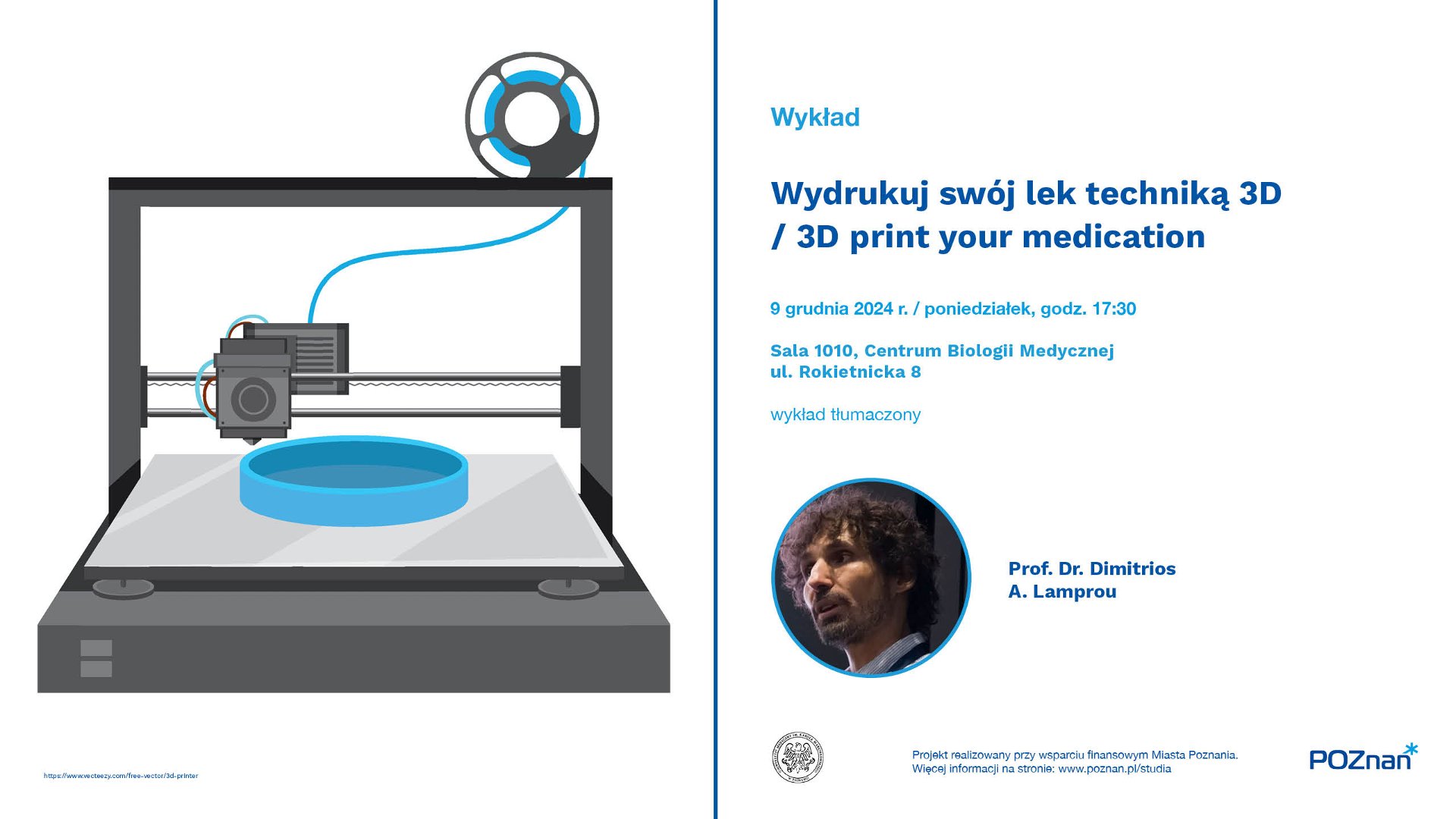Open lecture: "Print your medicine with 3D technology"

Professor Dimitrios Lamprou is employed as Head of the Department of Biofabrication and Advanced Manufacturing Processes at Queen's University in Belfast, Northern Ireland. He received his bachelor's degree in medical engineering from the University of Bradford (UK), where he worked on modelling flow and diffusion in dialysis processes. In turn, he obtained his MSc in Biomedical Engineering from the University of Surrey (UK), conducting research related to tissue engineering. He also holds a PhD in biological surface chemistry. In addition, he holds a certificate in computer science, a postgraduate certificate in research methods for laboratory professionals, a Master of Business Administration (MBA) from Middlesex University (UK) and an honorary doctoral degree from Semmelweis University (Hungary). He has also attended numerous training courses at renowned universities in Greece, the UK and the United States (including Massachusetts Institute of Technology).
Prof. Lamprou is a member of numerous scientific societies and expert groups, such as: - Bio-Effective Surface Treatment committee, - British Standards Institute committee, - Programme Board of Doctoral Studies at the University of Urbino Carlo Bo (Italy). He holds honorary visiting professorships at the University of Pavia (Italy) and Aldo Moro University in Bari (Italy).
No doubt, Prof. Lamprou is a world-renowned expert in innovative pharmaceutical and biopharmaceutical technologies. Despite his young age, he has gained status as one of the world leaders in 3D printing and microfluidic technology. According to algorithms based on the PubMed database, he is among the top 0.1% of scientists worldwide publishing in the area of 3D printing and 0.07% publishing on microfluidic techniques in the last 10 years. Moreover, his outstanding achievements in the topics of pharmaceutical science and biomedical engineering earned him a place on Stanford University's list of the top 2% of scientists in the world for several years in a row.
See more

Poznań Silent Night 2024

INTERSTUDENT 2025 - we choose the best foreign students

Open lecture: "Movement and measurement"
